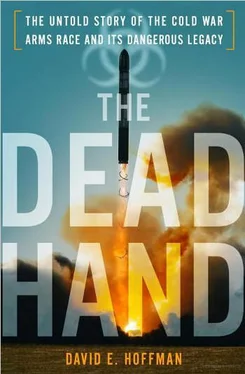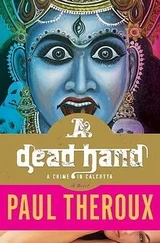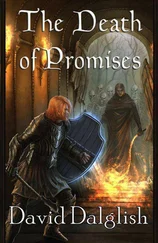During the Able Archer exercise, Gates recalled, there was considerable activity by Soviet and other Warsaw Pact military forces. Soviet military weather broadcasts were taken off the air during the exercise. Units of the Soviet Fourth Air Army had gone to increased readiness, and all combat flight operations were suspended from November 4 to 10, he added. Tensions eased slightly at the end of the exercise on November 11.
The superpowers did not trip a wire into war, but Reagan crossed a bridge of his own. For the first time, uncharacteristically introspective, he acknowledged that the Soviet leaders may have harbored true fears of attack. He wrote in his diary November 18: “I feel the Soviets are so defense minded, so paranoid about being attacked that without being in any way soft on them, we ought to tell them no one here has any intention of doing anything like that. What the h–l have they got that anyone would want. George is going on ABC right after its nuclear bomb film Sunday night. It shows why we must keep on doing what we’re doing.”
When ABC broadcast the film The Day After on November 20, it drew 100 million viewers, then the second-largest audience in history for a single television program. The first Pershing II missiles were deployed in Germany three days later, on November 23. The Soviets then walked out of the arms control talks in Geneva.
Reagan later recalled in his memoir, “Three years had taught me something surprising about the Russians: Many people at the top of the Soviet hierarchy were genuinely afraid of America and Americans. Perhaps this shouldn’t have surprised me, but it did. In fact, I had difficulty accepting my own conclusion at first.” He said he felt “it must be clear to anyone” that Americans were a moral people who, since the founding of the nation, “had always used our power only as a force for good in the world.” After World War II, the United States rebuilt the economies of its former enemies, he noted.
“During my first years in Washington,” Reagan said, “I think many of us in the administration took it for granted that the Russians, like ourselves, considered it unthinkable that the United States would launch a first strike against them. But the more experience I had with the Soviet leaders and other heads of state who knew them, the more I began to realize that many Soviet officials feared us not only as adversaries but as potential aggressors who might hurl nuclear weapons at them in a first strike; because of this, and perhaps because of a sense of insecurity and paranoia with roots reaching back to the invasions of Russia by Napoleon and Hitler, they had aimed a huge arsenal of nuclear weapons at us.”
In December, Reagan was thinking anew about his dream of eliminating all nuclear weapons. “This is his instinct and his belief,” Shultz told his aides at the State Department. “The president has noticed that no one pays any attention to him in spite of the fact that he speaks about this idea publicly and privately.” 48Shultz promised Reagan to study the idea. Reagan told Shultz on December 17 that he wanted to make a major speech about his desire to get rid of nuclear weapons. Reagan drafted a letter to Andropov on December 19 saying “we do not seek to challenge the security of the Soviet Union and its people.” 49
When Reagan spoke on January 16, 1984, many journalists assumed that it was the opening salvo of his reelection campaign. Reagan felt rejuvenated by his success with the Pershing II missiles, and he had decided to run for a second term. But this was not the only motivation. Reagan had read the top-secret reports from Gordievsky about Soviet war fears; he had personally rehearsed the nuclear war plan, the SIOP; and he had experienced a real crisis with the Soviets over the KAL shoot down. His own desire to eliminate nuclear weapons burned even more intensely than before. “Something has happened to the man,” a White House official said of Reagan. 50
In the address, which was broadcast also to Europe, Reagan did not refer once to an “evil empire” nor to communism falling into the dustbin of history. He did not talk about changing the Soviet system from within. Rather, he declared, “We do not threaten the Soviet Union.” He stressed “dialogue,” “constructive cooperation” and “peaceful competition.” And he declared, “My dream is to see the day when nuclear weapons will be banished from the face of the Earth.”
Then Reagan delivered the ending he had written himself:
Just suppose with me for a moment that an Ivan and an Anya could find themselves, oh, say, in a waiting room or sharing a shelter from the rain or a storm with a Jim and Sally. And there was no language barrier to keep them from getting acquainted.
Would they then debate the differences between their respective governments? Or would they find themselves comparing notes about their children and what each other did for a living? Before they parted company, they would probably have touched on ambitions and hobbies and what they wanted for the children and problems of making ends meet.
And as they went their separate ways, maybe Anya would be saying to Ivan: “Wasn’t she nice. She also teaches music.” And Jim would be telling Sally what Ivan did or didn’t like about his boss. They might even have decided they were all going to get together for dinner some evening soon.
Above all they would have proven that people don’t make wars. People want to raise their children in a world without fear and without war. They want to have some of the good things over and above bare subsistence that make life worth living. They want to work at some craft, trade or profession that gives them satisfaction and a sense of worth. Their common interests cross all borders.
If the Soviet Government wants peace, then there will be peace. Together we can strengthen peace, reduce the level of arms and know in doing so that we have helped fulfill the hopes and dreams of those we represent and, indeed, of people everywhere. Let us begin now.
Reagan had turned a corner. He was ready for the next act in the great drama.
Two days after Reagan’s speech, Gordievsky got another telegram from Moscow on the RYAN intelligence-gathering operation. The spymasters were still searching for signs of nuclear war. The KGB believed that clues to a possible nuclear first strike could be found by looking at banks, post offices and slaughterhouses. The KGB urged its agents to check out “mass slaughter of cattle and putting meat into long cold storage.”
On January 2, 1984, Fritz W. Ermarth became the national intelligence officer for the Soviet Union, taking up a key position attempting to synthesize intelligence from many different sources to guide policy makers. Ermarth had previously worked on Soviet issues at the CIA and the White House National Security Council. Almost immediately, the deputy director for intelligence, Gates, gave him an urgent assignment: to write a Special National Intelligence Estimate on the tense situation with the Soviet Union. “The issue was terribly important,” Gates recalled. “Had the United States come close to a nuclear crisis the preceding fall and not even known it? Was the Soviet leadership so out of touch that they really believed a preemptive attack was a real possibility? Had there nearly been a terrible miscalculation?”
Ermarth’s report was finished May 18, 1984. He concluded that the war scare did not lead the Soviets to fear nuclear attack. Ermarth said “we knew a lot about Soviet and Warsaw Pact war plans. In effect, we had many of their military cook books.” 51Thus, he said, the United States could easily compare what the Soviets were doing with the real war plans. “This permitted us to judge confidently the difference between when they might be brewing up for a real military confrontation or, as one wag put it, just rattling their pots and pans.” He concluded they were just rattling the pots and pans.
Читать дальше












